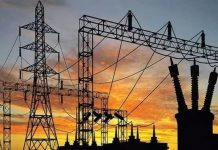ISLAMABAD: The shortage of water for irrigating agricultural land in Pakistan has been adversely affecting food security in the country, WealthPK reports.
The change in global environment and climate, mainly due to uncontrolled exploitation of nature by humans, has caused gradual depletion in the water resources and underground water table in many countries. Pakistan’s agriculture depends heavily on irrigation as almost 90 percent of its agricultural yield comes from irrigated lands.
Muhammad Bilal Iqbal, a scientific officer at National Agriculture Research Centre (NARC), said that water resources in Pakistan are under greater stress due to the rapidly increasing population of the country and the growth of urbanisation and industrialisation.
“There is a huge impact of water scarcity on food production. In response to Pakistan’s exponential population growth, its food demand is also increasing. The country is running out of water to feed a growing population,” he said.
Muhammad Bilal said that water is the basic requirement of agriculture as livestock and crops need water. In the absence of water, people are unable to irrigate their agricultural land and consequently providing food for the rapidly growing population is becoming difficult,” he added.
He said that the role of agriculture in the economic development of Pakistan could not be ignored. Pakistan is still an agricultural country. “Agriculture contributes 22.7 percent to the Gross Domestic Product (GDP) growth of Pakistan. A large portion of the labour force is involved in the sector. At least 37.4 percent of the labour force is attached to the agriculture sector in the country. The sector is also an important source of foreign exchange and stimulates economic growth,” he added.
Muhammad Bilal stressed the need for tapping into the water potentials and developing additional sources to improve water availability and storage for agricultural sustainability in the country.
“Demand for water supply is increasing due to growing agricultural and domestic needs. Pakistan’s water profile has changed drastically from being a water-abundant country to one experiencing water stress,” he told WealthPK.
He said that population growth, rapid urbanisation and industrialisation, as well as water-intensive obsolete farming practices have caused water shortage in the country.
Rainfall during the monsoon season in 2021 was 125.0 millimetres, showing a decrease of 11.3 percent compared to the normal average rainfall of 140.9 millimetres. The rainfall in the post-monsoon season in 2021 was 23.5 millimetres compared to the normal average of 26.4 millimetres, showing a decrease of 11.2 percent. As compared to the normal average rainfall of 74.3 millimetres, 72.7 millimetres of rainfall was recorded during the winter season in 2022, showing a decrease of 2.2 percent.
The improvement of water resources and storage of rainwater can resolve the issue of water shortage in Pakistan. The government needs to devise an effective plan for the management and protection of water resources besides making accessible groundwater for drinking, domestic, agricultural and industrial purposes.
INP
Get Outlook for Android






